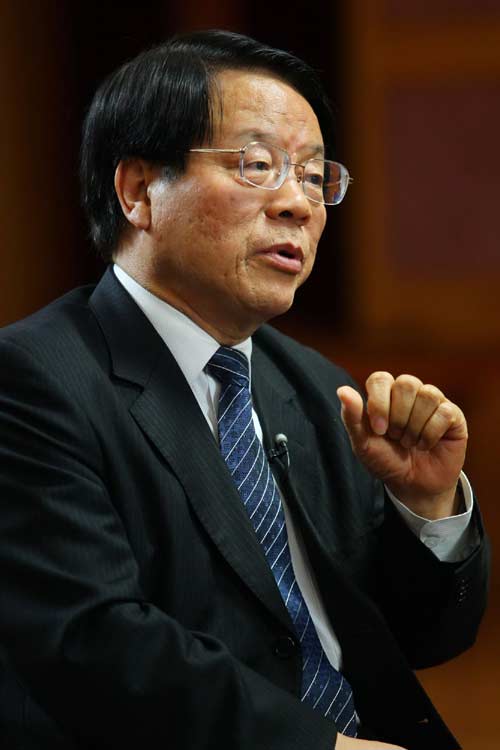Government and Policy
A song in his heart for culture
By Chen Jie (China Daily)
Updated: 2010-11-30 07:49
 |
Large Medium Small |
Beijing - Minister of Culture Cai Wu loves singing.
On weekends, the 61-year-old minister goes to parks where elderly citizens enjoy singing and dancing, drawing inspiration from songbooks featuring popular songs over the last 60 years.
|
 Cai Wu is the minister of culture. |
So in October 2009, he compiled a book of 60 such songs and distributed it in the parks for free.
"I can sing all 60 songs and the book is now popular in many parks in Beijing," the minister told China Daily. "I feel happy to see others my age enjoy themselves in parks. We share many memories and we love the same songs. To them, it is the basic cultural life. To me, it is my responsibility to provide them with the best cultural service."
Since Cai was appointed minister of culture in March 2008, improving the public cultural service has been his priority. In 2009, the ministry issued recommendations to build a nationwide library alliance and museum association.
By the end of 2009, nearly 85 percent of all counties in the country had a public library. Ninety-five percent of all townships now have cultural centers. More than 1,500 museums under the administration of the ministry have opened free to the public, and free private museums receive financial support from the ministry.
"As the country's economy booms and people live a better material life, what will make them feel happy? Maybe reading a book, watching a movie, going to the theater or traveling with family," Cai said.
But the government budget for cultural development accounts for only 0.4 percent of total public expenditure. The United States has some 40,000 movie screens while China has only 4,000. In developed countries, 20,000 to 30,000 people share one library, but in China 400,000 people share one.
He also pointed out that in recent years many Western artists touring China envy the gorgeous theaters or opera houses mushrooming in the country. But if the population is taken into consideration, these new theaters are far from enough - let alone that many of them are not fully used - since domestic production companies are in their primitive stages and cannot provide regular shows.
In November 2005, the Ministry of Culture joined hands with the Ministry of Finance and the Ministry of Human Resources and Social Security to encourage the development of private performing arts companies. Since then, more than 6,800 registered private ensembles have emerged and given more than two million shows every year to enrich people's entertainment choices and fill the huge market that State-owned companies cannot cover.
The ministry will also provide financial support to private companies lacking funds.
While promoting domestic culture, the minister also emphasized that the government must encourage and support Chinese companies on the world stage.
"We hope cultural products such as films, theater, books and animation will be an important part in the world market of the future," he said.